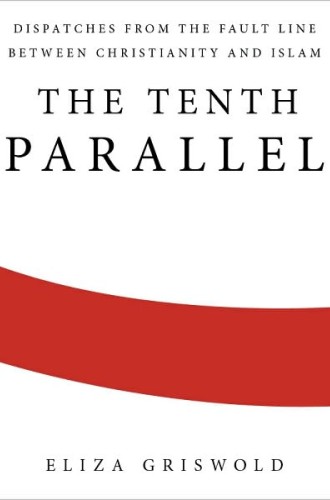The Tenth Parallel, by Eliza Griswold
Eliza Griswold's book is a nearly perfect puzzle. On the one hand, she is doing some of the most important religious journalism being done these days. If God has, as one of her interview subjects puts it, "moved his work to Africa," then Griswold possesses a sharp pair of eyes for God's new work. It doesn't hurt that Griswold writes like an angel and has an eye for irony and detail. On the other hand, Griswold doesn't understand Christianity very well. That's a drawback when covering the faith in Africa, and it's especially odd given that she is the daughter of former Episcopal presiding bishop Frank Griswold.
Griswold's skills are abundantly evident in her story of two friends in Nigeria who live near the tenth parallel, the "fault line" in Africa between Christianity and Islam. One is a Christian and the other is a Muslim, and together they speak out against religious violence even though the Muslim took off one of the Christian's limbs with a machete during an earlier upsurge in religious violence.
She is also deft at explaining how global warming is a prime instigator of religious violence all across Africa (as the desert expands, Muslims move south and conflict ensues). She describes how both Muslim identity (in the Philippines) and Christian identity (in the Sudan) can be used to carve out space against imperial aggressors, and she notes that neither faith has the resources to hold out against rapacious global capitalism. I was especially delighted by her portraits of militants in Indonesia—who with their vials of herbal medicine for sale look "a lot like a Mary Kay cosmetics concern"—and by her account of the militant JihadMagz with its impossibly peppy slogan (in English), "Always Making the World Better."





